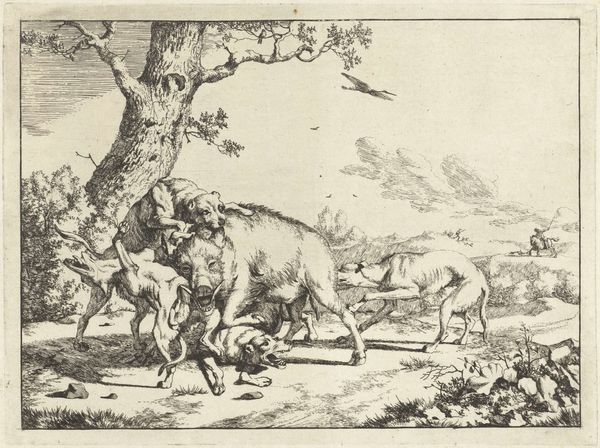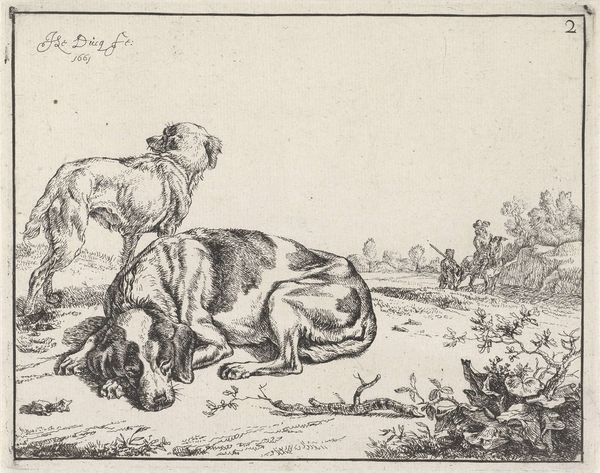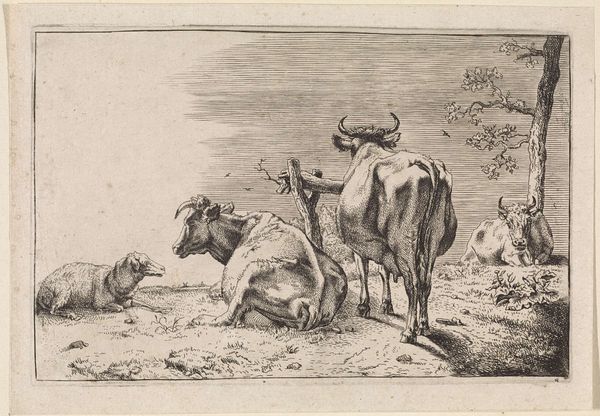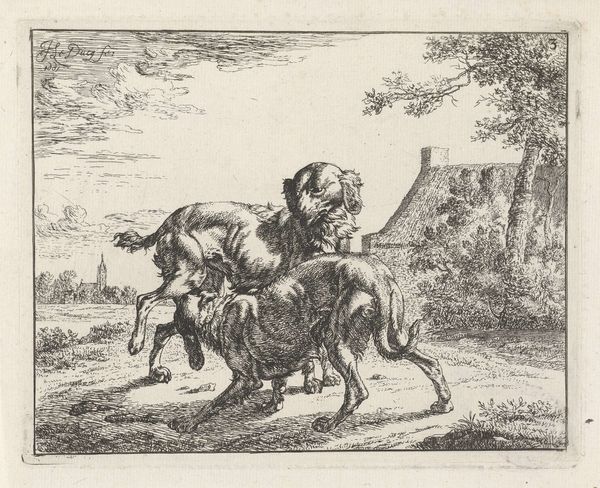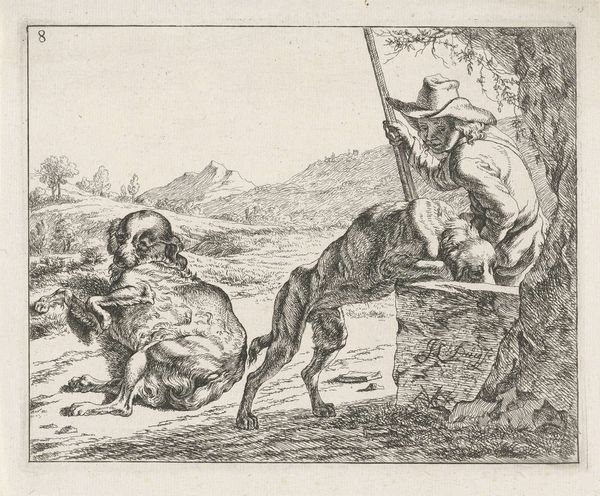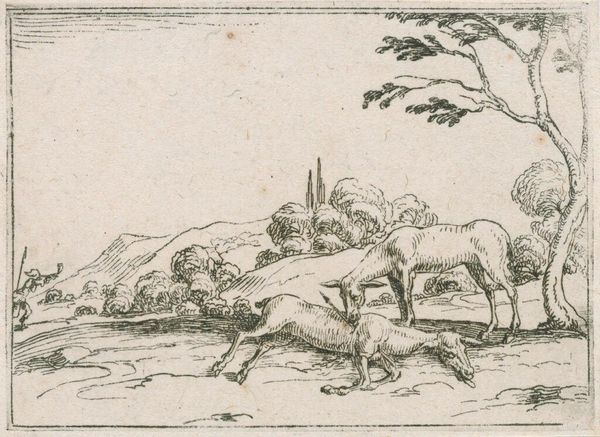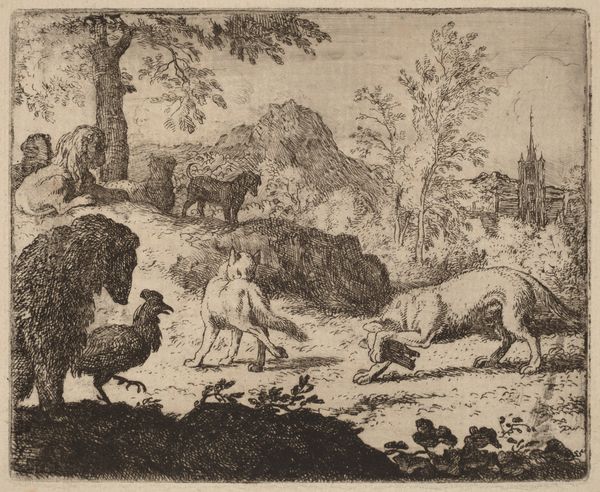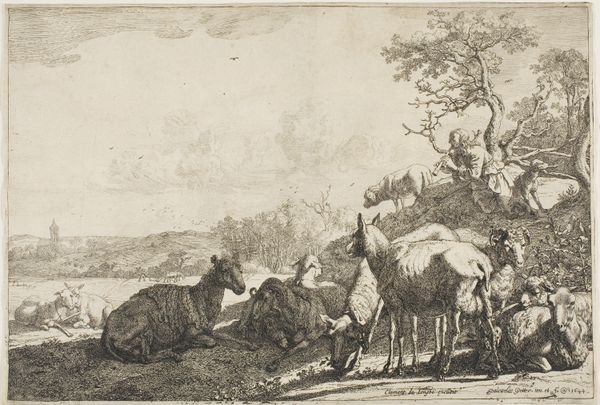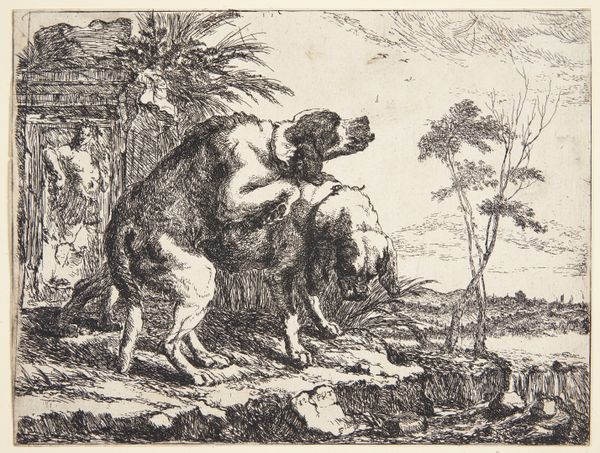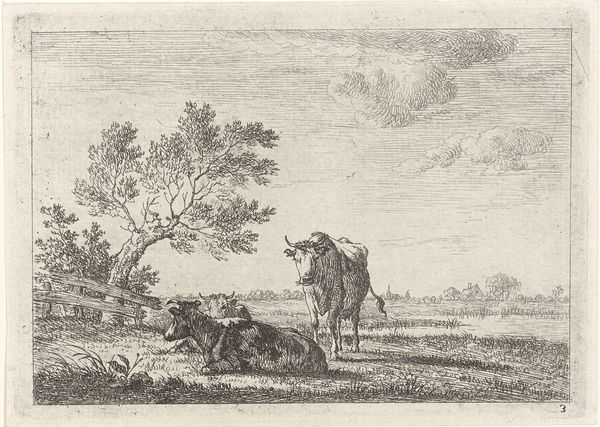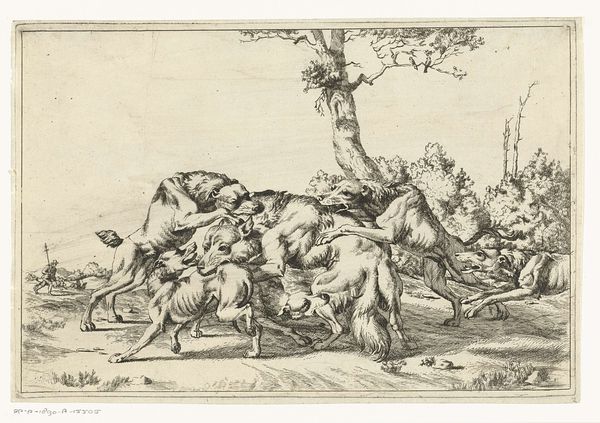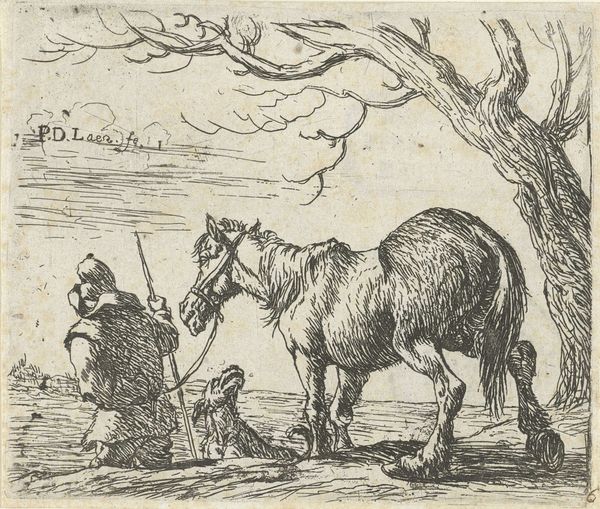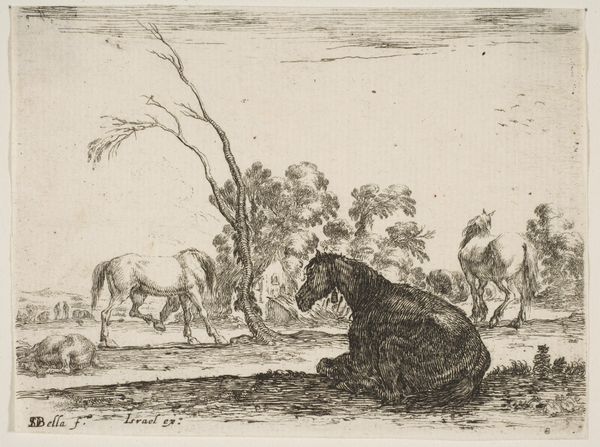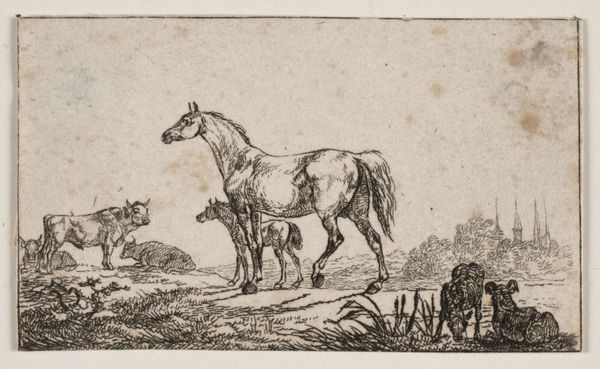
print, engraving
#
animal
#
dutch-golden-age
# print
#
pen sketch
#
dog
#
landscape
#
figuration
#
line
#
genre-painting
#
engraving
#
realism
Dimensions: height 145 mm, width 185 mm
Copyright: Rijks Museum: Open Domain
Editor: This is Johan le Ducq’s “Two Dogs Fighting Over a Piece of Meat,” an engraving from 1661. It's so visceral, the tension between the dogs is almost palpable. I'm struck by how relevant this scene feels even now. How do you interpret this work in the context of its time, and even our own? Curator: It's a great observation about its relevance. While seemingly a simple genre scene, it can be viewed through a socio-political lens. Consider 17th-century Dutch society: rapid economic expansion, increased social stratification. Could this struggle for meat symbolize the fierce competition for resources and status? Think of the Dutch East India Company and the relentless pursuit of wealth. Do you see parallels? Editor: Absolutely, that adds a whole new dimension. The aggressive stance of the dogs, their refusal to share, mirrors the cutthroat nature of early capitalism and colonial expansion. Were viewers at the time likely to pick up on such a message? Curator: Perhaps not explicitly, but art often subtly reflects the anxieties and values of its culture. The "dog eat dog" mentality, if you will. It's also worth considering the print medium itself. Prints allowed for wider distribution of such messages, potentially reaching a more diverse audience than paintings commissioned by the wealthy elite. Editor: That makes me think about power structures—who has access, who is excluded. It seems this image, in its simplicity, touches on complex themes of inequality. Curator: Exactly. And that’s precisely why revisiting art with contemporary lenses is so vital. We can unpack its hidden commentaries on issues of identity, access, and social justice, offering insights into the past that resonate powerfully today. What do you take away from this piece now? Editor: I see a biting critique masked as a simple genre scene, reminding us that struggles for resources are never truly isolated events. Thank you; I had not considered this.
Comments
No comments
Be the first to comment and join the conversation on the ultimate creative platform.
